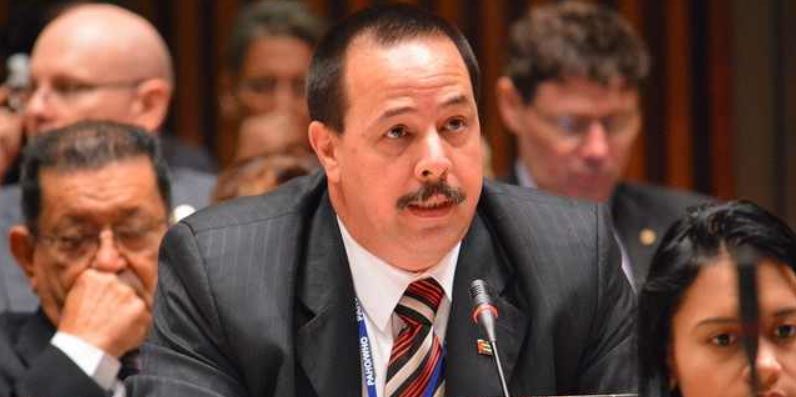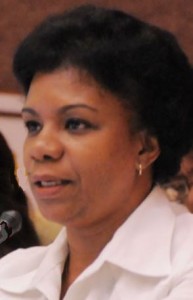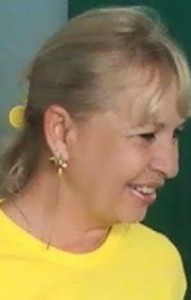
Central government acts to stop spread of dengue fever in Holguín
The Cuban government has sent its vice minister of Health and the head of the Water Resources Institute from Havana to the province of Holguín to supervise the battle against an outbreak of dengue fever and cholera that has already caused the cancellation of the annual Carnaval Holguín, originally set for Aug. 20-23.
Vice Minister Jos Ángel Portal Miranda (in photo at top) and Inés María Chapman, who is also a member of the nation’s Council of State, met with Luis Antonio Torres Iribar, first secretary of the Communist Party in Holguín, and Marcia Aguero Sánchez, vice president of the provincial government, to work out a strategy to control the spread of the diseases, Radio Angulo reported Friday (Aug. 7).

Political and civic leaders, health officials and other provincial and city functionaries attended the meeting, the radio station’s website said.
Portal Miranda said that Holguín is the only Cuban province affected by the outbreak of dengue fever, a mosquito-borne disease characterized by high fever, rash and muscle and joint pain. In severe cases, the disease can cause severe bleeding, shock and death.
Cholera is a bacterial disease that usually spreads through contaminated water. It causes severe diarrhea and dehydration, which, left untreated, can be fatal within hours. Cases of cholera have been reported in the Calixto García municipality, according to Radio Angulo.
“The problem is that Holguín had no cases of dengue for years and people lost their fear of that disease,” Portal Miranda told the local press. “That worsens the situation, because it can cause deaths, as indeed has happened.” He did not say how many casualties had occurred.

Cuba is the only country with an integral program for the control of the Aedes Aegypti mosquito, which carries the dengue virus, Portal Miranda said. “There is sufficient experience in that program, with properly trained personnel, enough laboratories and hospitals,” he added.
To curb the spread of the mosquito in Holguín City, “aerial fumigation was carried out at dawn on Monday [Aug. 3] and concentric house-to-house fumigation was begun from the city’s perimeter toward the center and back,” Aguero Sánchez said.
City residents were asked to cover all water tanks in homes to discourage mosquito procreation and to sanitize their drinking water with sodium hypochlorite.
Torres Iribar said that every effort was being made by local health authorities to halt the spread of mosquitoes and disinfect the drinking water. He called for an increase in the number of health inspections and the activation of rapid-response teams to handle the fumigation in outlying municipalities.
Unofficial sources told Progreso Semanal that the Holguín Surgical Hospital had an overflow of dengue cases, so health authorities were converting the School of Humanities of the Lucero Moya University into an emergency hospital.
In all, four medical centers have been made available to dengue patients, plus the local Pediatric Hospital and a field hospital at the Nursing Station. Cholera care units have been opened at every clinic in the city, a Progreso reporter was told.

